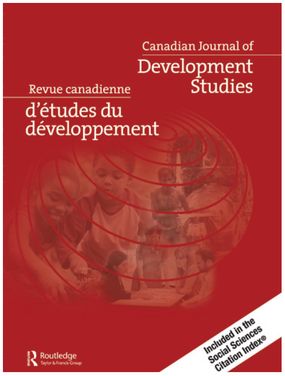
Article
Opportunities, limits and challenges of perceptions studies for humanitarian contexts
Caroline Abu-Sada
2016This article aims to advance understanding and discussion of perceptions studies as a method for strengthening humanitarian performance. Perceptions studies are qualitative studies produced for and...
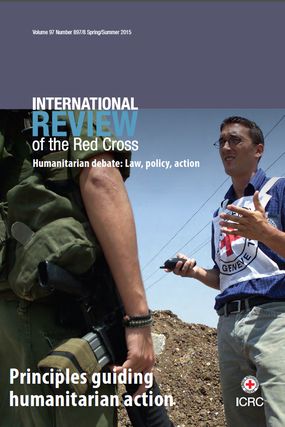
Article
Volunteers and responsibility for risk-taking: Changing interpretations of the Charter of Médecins Sans Frontières
Caroline Abu-Sada
2016The Charter of Médecins Sans Frontières (MSF), the guiding document for all of the organization’s members, states in the final paragraph that volunteers “understand the risks and...
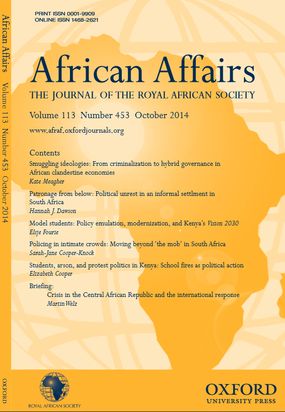
Article
Challenges in Responding to Massive Displacements in Resource-poor Settings: The Case of Central African Republic Refugees in Eastern Cameroon
Caroline Abu-Sada
2015Read the letter by Caroline Abu Sa'Da and Christine Jamet, a response to the briefing by Welz “Crisis in the Central African Republic and the international response” published in...
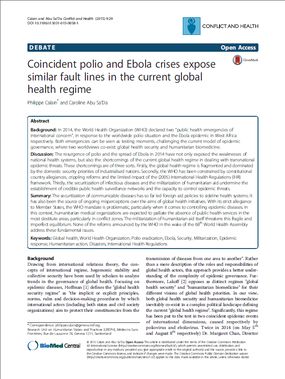
Article
Coincident polio and Ebola crises expose similar fault lines in the current global health regime
Caroline Abu-Sada, Philippe Calain
2015In 2014, the World Health Organization (WHO) declared two "public health emergencies of international concern", in response to the worldwide polio situation and the Ebola epidemic in West Africa...
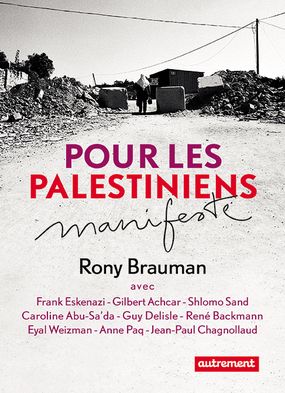
Book
L’urgence d’une souveraineté alimentaire
Caroline Abu-Sada
2014From France, Rony Brauman, former president of MSF France, gives us his reading of the philosophical, political and symbolic stakes of Palestine and of this debate – one that particularly...

Report
Central African Refugees in Chad and Cameroon: "Suitcase or Coffin"
Caroline Abu-Sada
2014The survey data and the testimonies gathered by MSF teams in Chad and Cameroon highlight the breadth of the violence that the populations experienced both in the CAR and as they fled the country.
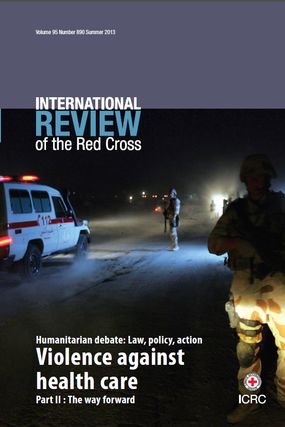
Article
Attacks on medical missions: overview of a polymorphous reality: the case of Médecins Sans Frontières
Caroline Abu-Sada, Françoise Duroch
2014The aim of this article is to carry out a preliminary analysis of issues relating to the types of violence that are directed against humanitarian medical missions.

Book
Juego de espejos: Reflexiones sobre la percepción de MSF y la acción humanitaria
Caroline Abu-Sada
2014What are the ethical issues involved in providing humanitarian aid? What is the real impact of humanitarian groups? MSF sought to answer these questions in the Perception Project, a study that...

Article
Perspectives of refugees on returning to Somalia
Caroline Abu-Sada, Sergio Bianchi
2014MSF recently asked Somali refugees in Dadaab’s Dagahaley camp about their living conditions and their thoughts about returning to Somalia in the near future. The responses suggest that bad living...

Article
Humanitarian and medical challenges of assisting new refugees in Lebanon and Iraq
Caroline Abu-Sada
2013The massive and continuing flows of Syrian and Palestinian refugees to Syria’s neighbours have shown the limitations of humanitarian practice and present new challenges for medical and humanitarian ...
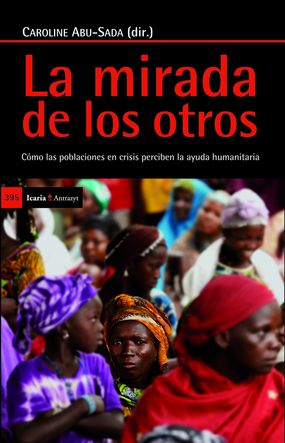
Book
La mirada de los otros : Cómo las poblaciones en crisis perciben la ayuda humanitaria
Caroline Abu-Sada
2013Over the past 40 years, Doctors Without Borders/Médecins Sans Frontières (MSF) has developed a reputation as an emergency medical humanitarian organization willing to go almost anywhere to deliver...

Article
Perspectives from the field
Caroline Abu-Sada, Françoise Duroch
2013Since its foundation, MSF has faced different forms of violence against its patients, staff, health facilities and medical vehicles, as well as against national health systems in general. Medical...